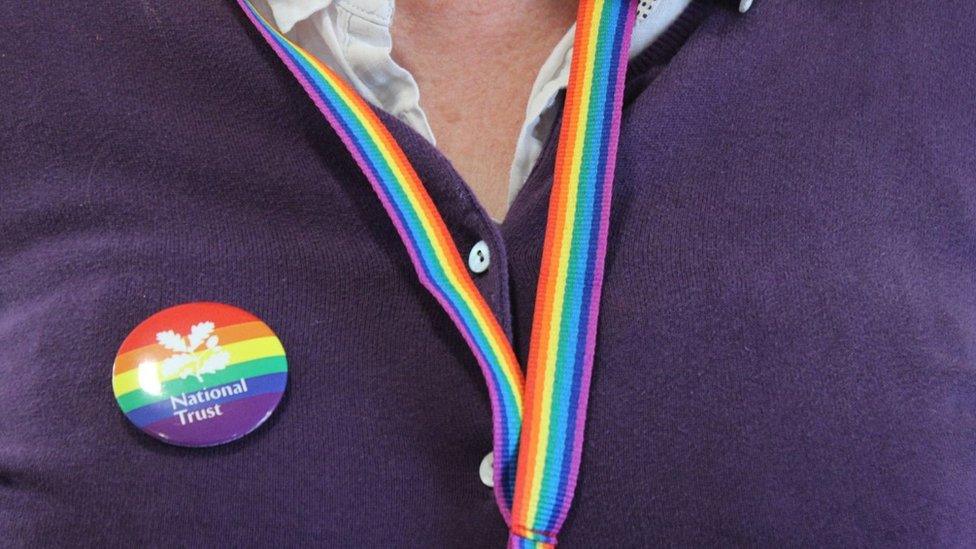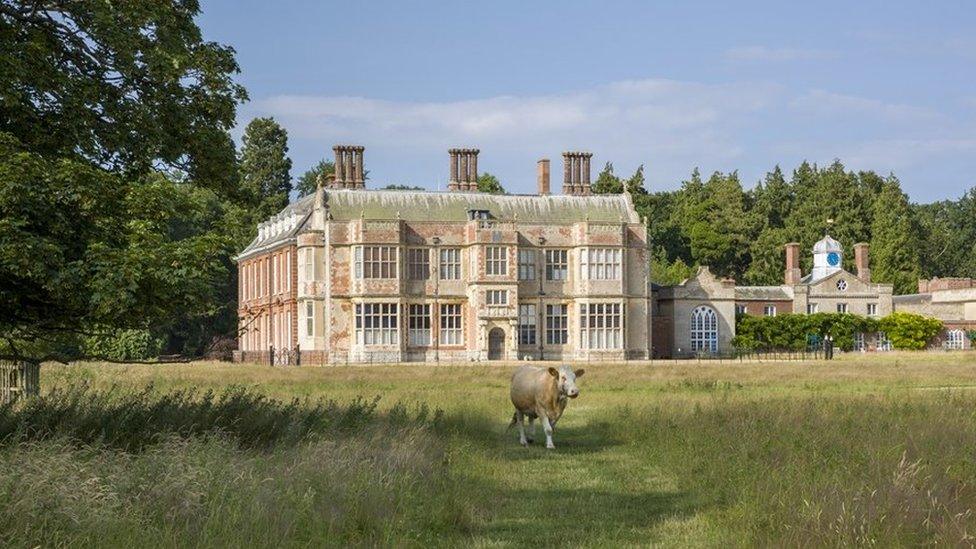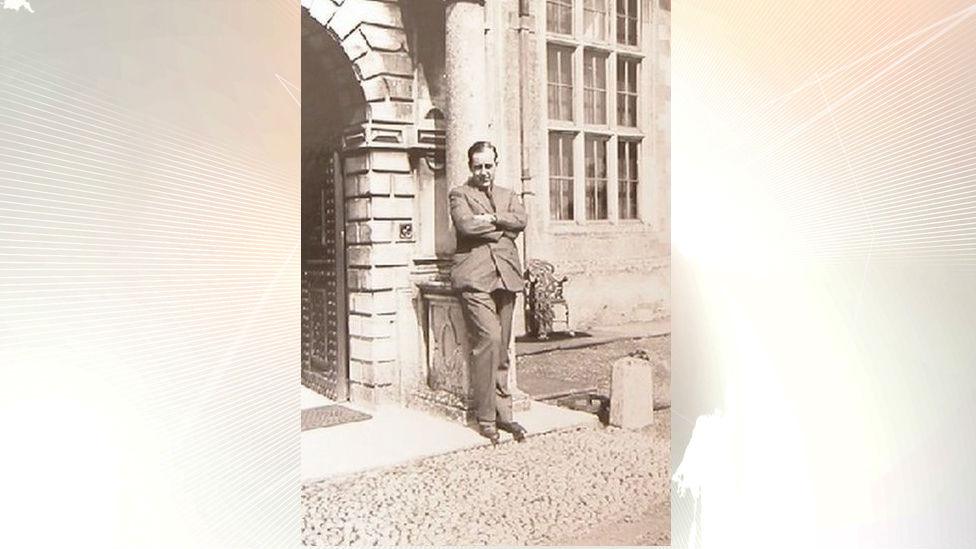National Trust volunteers refuse to wear LGBTQ badges
- Published

Volunteers at Felbrigg Hall in Norfolk have been asked to wear rainbow-coloured badges and lanyards in support of an LGBTQ campaign
A group of National Trust volunteers have been offered duties away from the public after "feeling uncomfortable" wearing sexual equality symbols.
As first reported in the Eastern Daily Press,, external volunteers at Felbrigg Hall in Norfolk have been asked to wear rainbow-coloured badges and lanyards in support of an LGBTQ campaign.
But 10 of the 350 volunteers at Felbrigg have chosen not to wear them.
A new film said Felbrigg's last lord, Robert Wyndham Ketton-Cremer, was gay.
Annabel Smith, head of volunteering and participation development at the National Trust, said: "All of our staff and volunteers sign up to our founding principles when they join us - we are an organisation that is for ever, for everyone.
"We are committed to developing and promoting equality of opportunity and inclusion in all that we do."

Robert Wyndham Ketton-Cremer left his ancestral home to the nation upon his death in 1969
As part of the National Trust's Prejudice and Pride campaign, and in conjunction with research done by the University of Leicester, a new film revealed Mr Wyndham Ketton-Cremer's sexuality, which was known by close friends.
The campaign is being run to mark 50 years since homosexuality was decriminalised in 1967, two years before Mr Wyndham Ketton-Cremer's death.

A new film said Felbrigg's last lord, Robert Wyndham Ketton-Cremer, was gay
One long-term volunteer, who asked not to be named, said: "It's very upsetting. We are like a family and this feels like a break up. I don't think Felbrigg will be the same again."
She said she did not think the film should have been made because Robert Wyndham Ketton-Cremer was "a private man".
The volunteer said she had not seen the film but had heard "it was distasteful".
Some volunteers at the 17th Century country house have chosen to take a break from all duties during the Trust's summer programme, while others have taken up the option to move into backroom roles.
Ms Smith said: "Whilst volunteering for the National Trust we do request and expect individuals to uphold the values of the organisation.
"We encourage people with any concerns to chat to our teams."